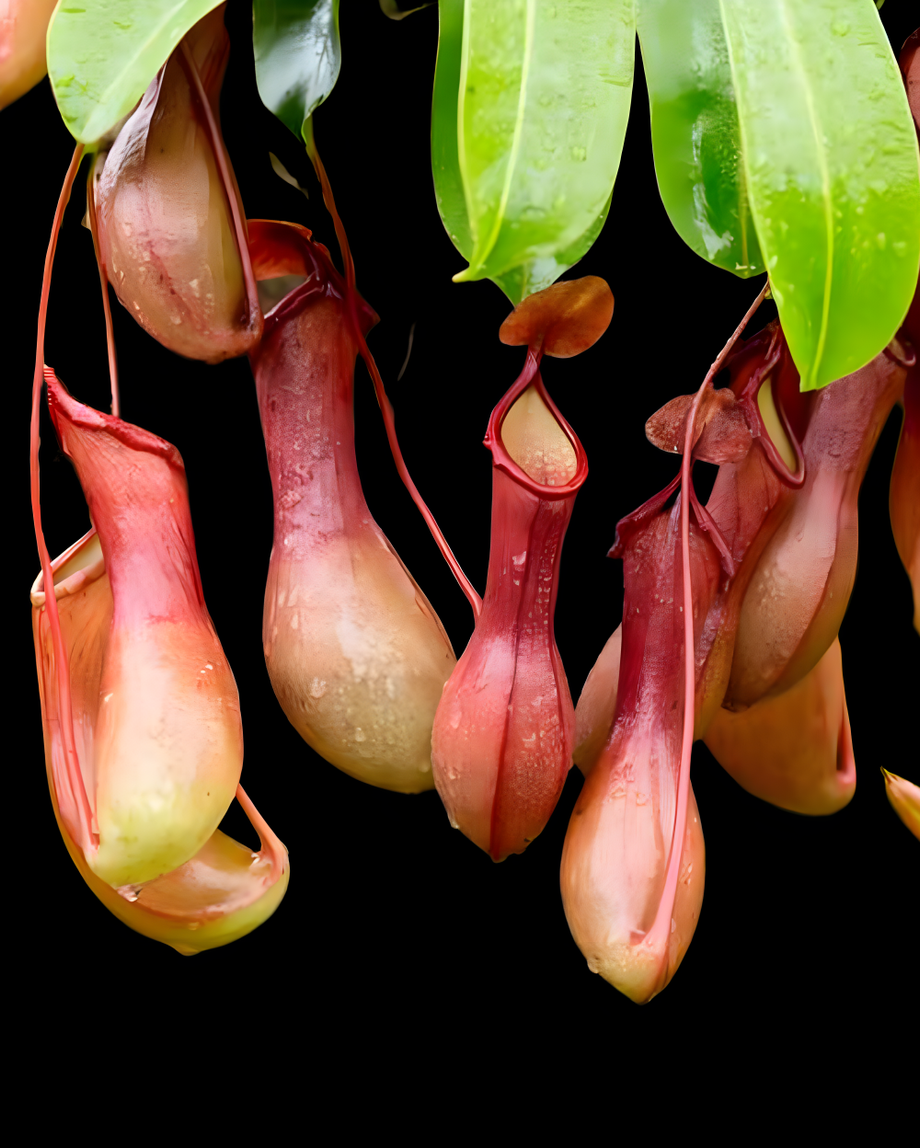For nature enthusiasts and gardening aficionados, carnivorous plants represent a captivating and unique addition to their collection. These remarkable plants have evolved to catch and digest insects and other small prey as a source of nutrients. Buying carnivorous plants online offers an accessible and convenient way to explore the intriguing world of these botanical predators. In this article, we will delve into the diverse and exotic realm of carnivorous plants, as well as guide you on how to buy and care for them online.
The Fascination of Carnivorous Plants
Carnivorous plants have long captured the imaginations of plant enthusiasts and scientists alike. Their evolutionary adaptations to nutrient-poor habitats have resulted in a wide variety of ingenious trapping mechanisms. Some of the most famous carnivorous plants include:
Venus Flytrap (Dionaea muscipula): This iconic plant, native to the Carolinas in the United States, features hinged leaves with sensitive trigger hairs. When an insect lands on the leaves and triggers the hairs, the leaves snap shut, trapping the prey.
Pitcher Plants (Sarracenia): These North American natives have tall, tube-shaped leaves filled with liquid. Insects are lured into the pitcher by the plant's enticing colors and nectar. Once inside, they become trapped and eventually digested by the plant's enzymes.
Sundews (Drosera): Sundews are known for their sticky, glandular tentacles that secrete a sweet and viscous substance. When an insect lands on a sundew leaf, it becomes ensnared in the sticky liquid, and the plant's enzymes break down the prey.
Nepenthes: Also known as tropical pitcher plants, Nepenthes species have unique pitcher-shaped leaves that hang from tendrils. Insects are attracted to the sweet-smelling nectar on the rim of the pitcher and fall into the fluid-filled trap, where they meet their fate.
Buying Carnivorous Plants Online
Purchasing carnivorous plants online has become increasingly popular due to the convenience and access to a wide variety of species and cultivars. Here's a step-by-step guide to buying carnivorous plants online:
Select a Reputable Online Retailer: Start by researching reputable online nurseries or retailers that specialize in carnivorous plants. Look for reviews, customer testimonials, and information about their plant sourcing and care practices.
Explore the Selection: Browse through the online catalog to explore the diverse range of carnivorous plants available. You'll find various species, sizes, and even hybrids to choose from. Take your time to discover the plants that capture your interest.
Check Availability: Carnivorous plants may have specific growing requirements, so check the availability of the species you desire, considering factors such as climate and care conditions.
Read Descriptions: Pay close attention to plant descriptions, including size, growth habits, and care instructions. This will help you select plants that align with your gardening skills and environment.
Review Care Guides: Reputable online retailers often provide care guides or resources to help you understand the specific needs of carnivorous plants. Familiarize yourself with these guides to ensure proper care once your plants arrive.
Consider Accessories: Some online retailers offer accessories like appropriate potting media, containers, or terrariums tailored to carnivorous plants. These accessories can make it easier to provide the right environment for your new acquisitions.
Place Your Order: Once you've made your selections, proceed to the checkout and complete your purchase. Ensure that you provide accurate shipping information for a smooth delivery process.
Shipping and Arrival: Carnivorous plants are typically shipped with care, often in a dormant or semi-dormant state. Follow the retailer's guidelines for acclimating your plants to their new environment and potting them if necessary.
Caring for Carnivorous Plants
Caring for carnivorous plants can be a rewarding experience, but it does require attention to detail and a commitment to meeting their unique needs. Here are some general care tips for carnivorous plants:
Light: Most carnivorous plants require bright, indirect sunlight. Place them near a south-facing window or provide artificial light if necessary.
Water: Use distilled water, rainwater, or purified water with low mineral content to avoid harming the plants. Keep the soil consistently moist but not waterlogged.
Humidity: Carnivorous plants thrive in high humidity. You can increase humidity by placing a tray of water near the plants or by using a terrarium.
Soil: Use a well-draining, acidic potting mix specifically designed for carnivorous plants. Avoid regular potting soil, as it contains minerals that can harm them.
Feeding: While carnivorous plants can capture insects on their own, they may benefit from occasional feeding with small, live insects like fruit flies or gnats. Be mindful not to overfeed.
For More Info:-
Dendrobium Orchid For Sale India
Exotic Orchid Species For Sale India
Shop Online Oncidium Orchid India
Buy Online Oncidium Orchid Species






Comments